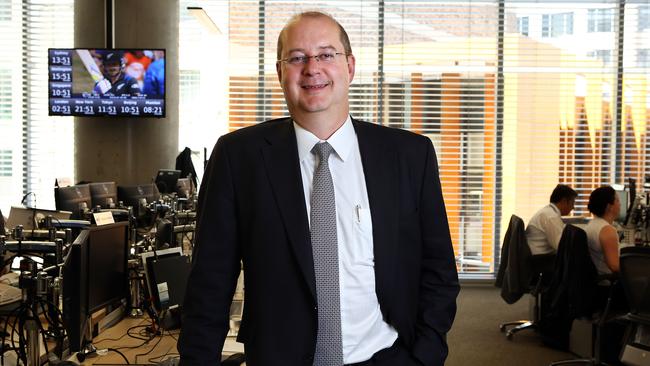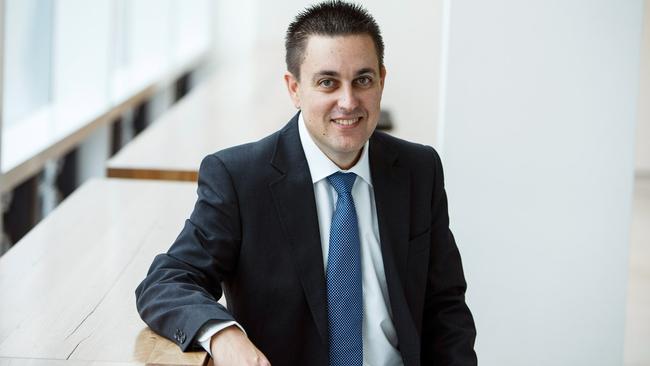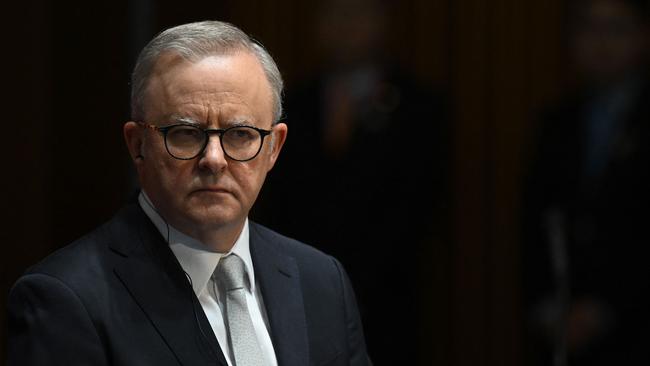RBA to lift interest rates, economists say, putting Labor’s Sydney seats ‘in play’
Top economists are now predicting interest rates will rise twice before the end of the year. That could put seats Anthony Albanese would have banked on retaining back “in play”.
NSW
Don't miss out on the headlines from NSW. Followed categories will be added to My News.
Leading economists warn that the Reserve Bank of Australia will be forced to lift interest rates even higher to counter the inflationary impact of Anthony Albanese’s tax cuts and government spending.
Former Commonwealth Treasury principal adviser Warren Hogan told The Daily Telegraph the RBA will have to lift the cash rate by 0.25 percentage points in August and again in November.
University of NSW economist Richard Holden told The Telegraph he also anticipates the next move will be up.
If these predictions prove correct, they would be a hammerblow to mortgagors – and federal Labor.
The RBA is currently holding a two-day meeting in Sydney to consider monetary policy settings and Mr Hogan said its board would be worried by recent data.

Last week the Australian Bureau of Statistics revealed the unemployment rate had fallen to 4 per cent in May after nearly 40,000 jobs were added.
“Employment … is picking up pace despite the economy being quite soft, which means we’re going to have no productivity growth,” Mr Hogan said.
“It will also mean that inflation is not coming down any further,” he said.
Annual inflation was 3.6 per cent in the year through March. In May, before those strong jobs numbers were published, the RBA was tipping inflation to be 3.8 per cent at the end of 2024.
Mr Hogan said the RBA board would be questioning whether the cash rate is at the right level to get inflation back to the target range of 2 to 3 per cent in 2025.
“The evidence building since they last met is getting worse for that view,” he said.
Mr Hogan, who was ranked the top rates forecaster of 2023, said the RBA’s post-meeting commentary was likely to begin laying the groundwork for an increase.
“The RBA will send a strong signal that they’re getting very close to having to raise rates because inflation isn’t coming down and the economy is proving resilient,” he said.
“Given the current sentiment they will probably need support from economists because most have a rate cut as the next move when in reality 40 per cent probably have a weakly held view of that.”
UNSW’s Professor Holden said he expects the RBA to tighten in August to lower inflation. He said while he supported the tax cuts that start in July, they would add to inflation “for sure.”
“They are not going to help matters by any means,” Prof Holden said.

A survey by comparison service Finder revealed other economists also anticipate a rate rise, but they are in the minority.
Betashares chief economist David Bassanese forecasts a decrease in November but said there was still a 30 per cent chance of a hike.
“The upside risk is if consumers decide to spend a lot of the tax cuts,” Mr Bassanese said.
Prof Holden said the rate cuts “might be fine were it not for the fact that we have very, very expansionary state and federal budgets.
“The Queensland state budget is almost a caricature of itself,” he said.
“And in the federal budget, for all the talk of responsibility and so forth, next year spending goes up by 1.5 per cent of GDP.”
Former Labor strategist Kos Samaras said any increase in interest rates would have major political consequences, particularly in Western Sydney.

“Seats like Werriwa and Macarthur would definitely be in play – no question about that,” Mr Samaras, director of consultancy RedBridge, said. Both are held by Labor with more than 55 per cent of the two-party preferred vote.
The cost of living was the top issue by far in most electorates.
“Any rate rise will tip a lot of people right into the red,” he said.
A 25 basis point increase in rates would add $82 a month to repayments on a $500,000 loan and twice that for $1 million.
Since May 2022, home-loan customers have already endured a 64 per cent increase in instalments.
Treasurer Jim Chalmers said Labor’s “policies are helping” to reduce inflation.
Opposition Treasury spokesman Angus Taylor said the government’s “bad economic management is the reason we’re seeing higher rates for longer.”
Do you have a story for The Daily Telegraph? Message 0481 056 618 or email tips@dailytelegraph.com.au


